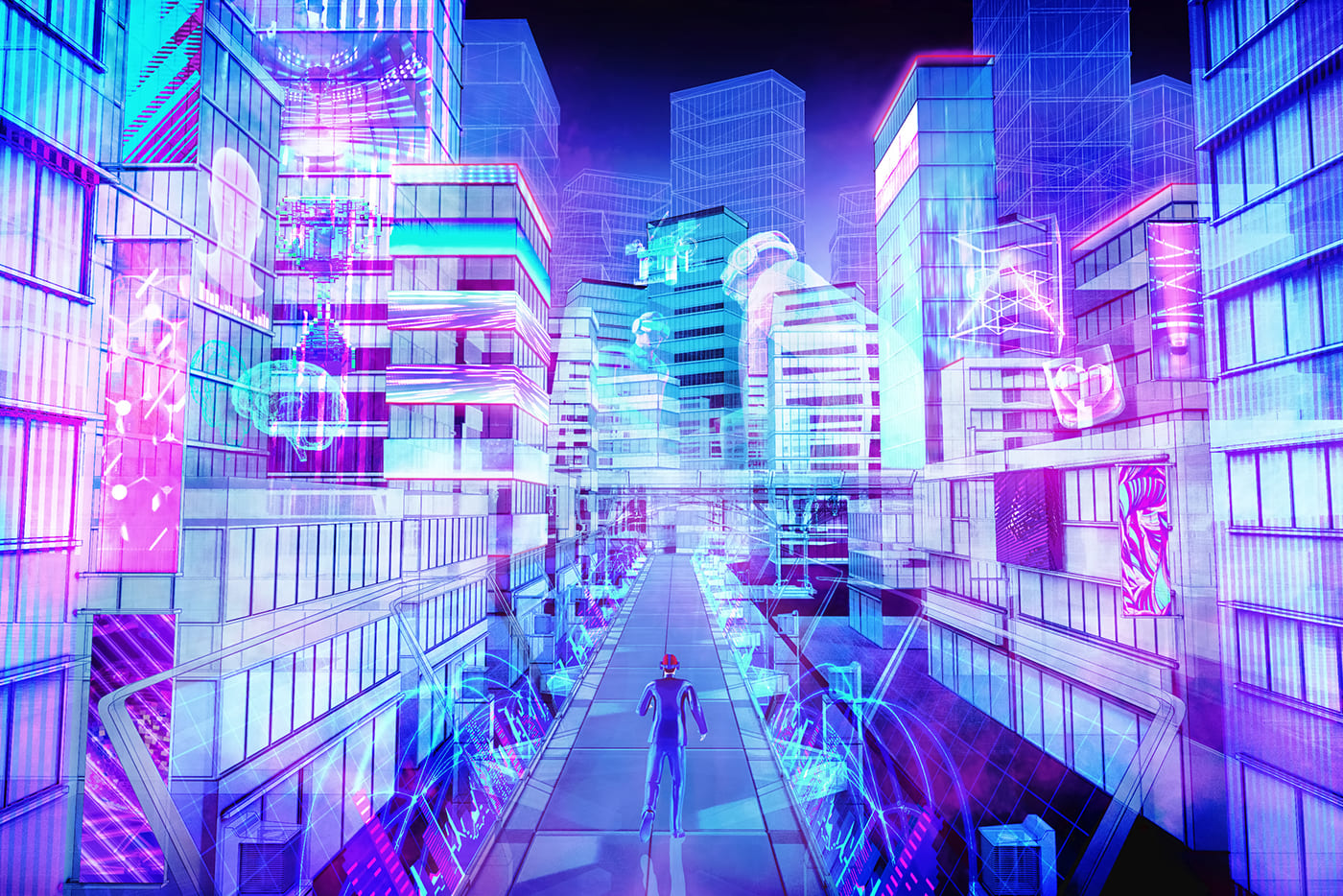7 Important Problems & Disadvantages Of The Metaverse
11 April 2022
Everyone is raving about all the potential benefits of the metaverse – but there is a darker side, too. Here are seven potential downsides to the metaverse.

The promises and possibilities of the metaverse are enormous – and many companies are developing apps, products, and services to help develop the metaverse and to serve its users in a more immersive digital world.
But there is a darker side to the metaverse, so we need to look at some of the challenges this incredible technology will bring.
Here are the seven biggest challenges of the metaverse that I see right now.
1. Privacy Issues
The metaverse is the next version of the internet, and we use technology like augmented and virtual reality to immerse ourselves in the digital world. With all this digitization comes privacy challenges.
We already have privacy concerns when we browse the web. The technology that is already tracking our behavior online will also exist in the metaverse, and the tracking is likely to become even more invasive and intense.
For example, VR-headsets will include eye-tracking technology, so marketers and advertisers could potentially see from our headset data where exactly we are looking in our immersive experience, and for how long. This is a marketer’s dream, of course, but is a major concern to anyone who is concerned about their privacy.
Companies will also be able to monitor our physical reactions as we link to wearable and haptic devices that measure our emotions and physical reactions. Enormous amounts of data could be collected and used by companies for marketing or other purposes.
2. Protecting Our Kids
As parents, it’s already difficult to track what our kids are doing online, and that challenge will continue with the metaverse. Understanding what our kids are doing in the metaverse will be even more challenging, because we can’t see the world they’re looking at in their VR headset, and there is no process in place for monitoring their screens using tablets or phones.
3. Health Concerns
VR “hangovers” are a known phenomenon, and people can also experience post-VR sadness. When we have experienced an amazingly immersive world and have to come back into the real world, it can make us depressed and sad – and the more incredible our immersive experiences become, the more people will struggle with this.
Internet or gaming addictions are already a big problem for kids and adults, and getting hooked on spending all our time in the metaverse could be an even greater problem in the future.
4. Access Inequality
In order to use augmented reality, we need the latest smartphone and handset technology, and VR experiences require high-tech, expensive headsets as well as strong and reliable connectivity.
How can we make sure that everyone in the world has equal access to the metaverse, and not just the people who have the most money and live in advanced countries? We will need to come up with plans to increase access to the metaverse as these immersive experiences become more and more important.
5. Metaverse Laws
Can a virtual act be a crime? The metaverse will bring regulatory challenges and will introduce new gray areas in many laws.
For example, if you are in virtual reality and you are wearing a haptic suit, and someone in the virtual world touches you without your permission, how is this different from an assault in the real world? We will need to face these regulatory challenges as technology advances and thorny legal issues emerge.
6. Desensitization
Many people will be playing violent games in VR, where you can touch and feel what you’re doing. These immersive experiences will feel very real and could lead to people becoming desensitized to their behaviors. In a game, if you are shooting a gun at someone or strangling that person, I believe there is a real risk that people will become more likely to replicate that behavior in the real world due to VR desensitization.
7. Identity Hacking
In the virtual world, we will be using avatars – and it will be possible for people to hack our avatars and steal our online identities. If this happens, the hacker could pretend to be you and could wreak havoc in your virtual and real worlds.
We must focus on security in the metaverse and find ways to verify identities and avoid deepfakes, to reduce VR-related cybercrime.
Clearly, there are a lot of potential problems with the metaverse, and many issues that we need to think through (and potentially regulate) as this technology evolves.
Related Articles
The Simple ChatGPT Trick That Will Transform Your Business AI Interactions
I believe ChatGPT and other generative AI tools can help pretty much any business.[...]
The Third Wave Of AI Is Here: Why Agentic AI Will Transform The Way We Work
The chess pieces of artificial intelligence are being dramatically rearranged. While previous iterations of AI focused on making predictions or generating content, we're now witnessing the emergence of something far more sophisticated: AI agents that can independently perform complex tasks and make decisions.[...]
How Generative AI Will Change Jobs In Cybersecurity
Ensuring robust cybersecurity measures are in place is more important than ever when it comes to protecting organizations and even governments and nations from digital threats.[...]
The 10 Most Important Banking And Financial Technology Trends That Will Shape 2025
As technological disruption and economic uncertainty continue to reshape the financial landscape, alongside dramatic shifts in consumer behavior and regulatory requirements, 2025 promises to be both challenging and opportunistic for banking and financial services.[...]
The 6 Most Powerful AI Marketing Trends That Will Transform Your Business In 2025
The quiet hum of AI servers is rapidly drowning out the traditional drumbeat of marketing departments worldwide.[...]
AI Everywhere – Scaling AI In The Cloud With Intel® Xeon®6
Today, the omnipresent AI that we’re starting to take for granted has become a critical tool for business.[...]
Sign up to Stay in Touch!
Bernard Marr is a world-renowned futurist, influencer and thought leader in the fields of business and technology, with a passion for using technology for the good of humanity.
He is a best-selling author of over 20 books, writes a regular column for Forbes and advises and coaches many of the world’s best-known organisations.
He has a combined following of 4 million people across his social media channels and newsletters and was ranked by LinkedIn as one of the top 5 business influencers in the world.
Bernard’s latest book is ‘Generative AI in Practice’.










Social Media